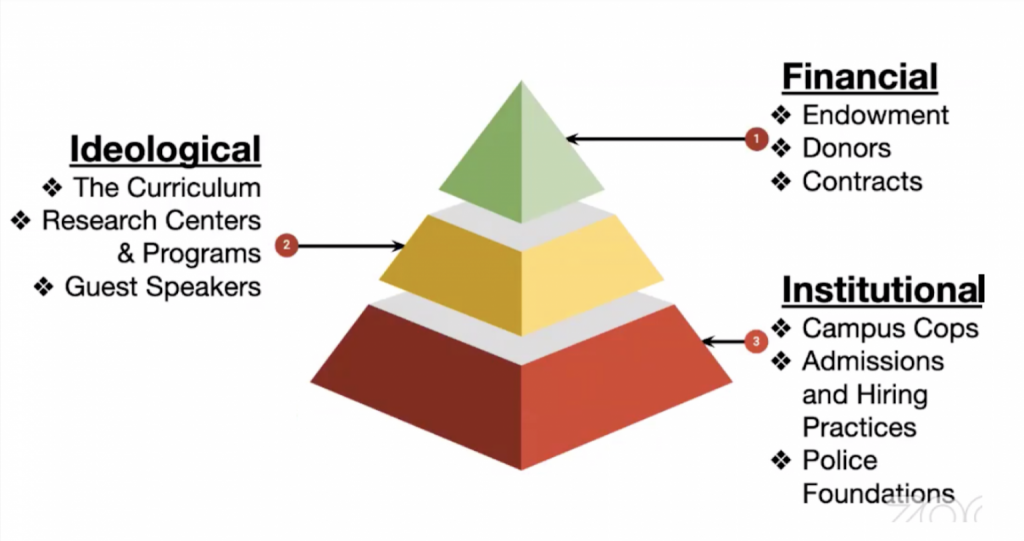University Investment
Understanding the relationship between the Prison Industrial Complex and Higher Education in the United States is crucial in order to envision dismantling the prison system. There are a number of means through which prisons are tied with institutions of higher learning. Each of these intersections provides a call for activism and change. Our higher education system is meant to better the lives of young people and create opportunities for all. Education is supposed to result in the betterment of society as a whole. With tying themselves to the Prison Industrial Complex, institutions of higher education are failing in that mission and perpetuating systemic racism and oppression by contributing to the narrative that certain groups of people are unworthy of opportunity.
When we think of American Higher education, we imagine ivory towers, quiet libraries full of students, and a place of growth and learning. However, upon closer inspection, it is evident that institutions of higher education across the country are in fact tied to the Prison Industrial Complex. The two largest private prison operators in the United States are CoreCivic and GEO Group. Close inspection of university endowments find that they are both directly and indirectly tied with institutions of higher education. While many institutions of higher education are directly invested in private prisons, on top of this many universities have millions of shares invested in companies that have over one million shares of CoreCivic and GEO Group. Here is a list of 29 financial investors that combined own over 2/3 of CoreCivic and GEO Group. In order to dismantle the Prison Industrial Complex, it is important for students, faculty, administrators, alumni, benefactors, and community members to call on universities to divest from not only private prisons, but also any company that is itself invested in prisons. In our capitalist United States, we live in a reality where money is largely what influences actors. Without all of this investment and ownership from other companies, private prisons would not be able to have the financial backing to operate at such an immense and growing scale. Additionally, without private investors, these private prisons would not have the monetary means to lobby for policies from the government to increase the need for private prisons such as influencing immigration laws and mandating stricter criminal punishments. It is estimated that GEO Group and CoreCivic have spent over $25 million on lobbying efforts (The Washington Post, 2015). Our criminal justice system deeply needs reform, not monetary incentives to expand and fill beds. If American universities claim to be places that value equal opportunity, they must ‘put their money where their mouth is’ and divest from prisons and companies that support prisons, as the school-to-prison pipeline and the mass incarceration of Black people clearly inhibits this idea of equal opportunity.

